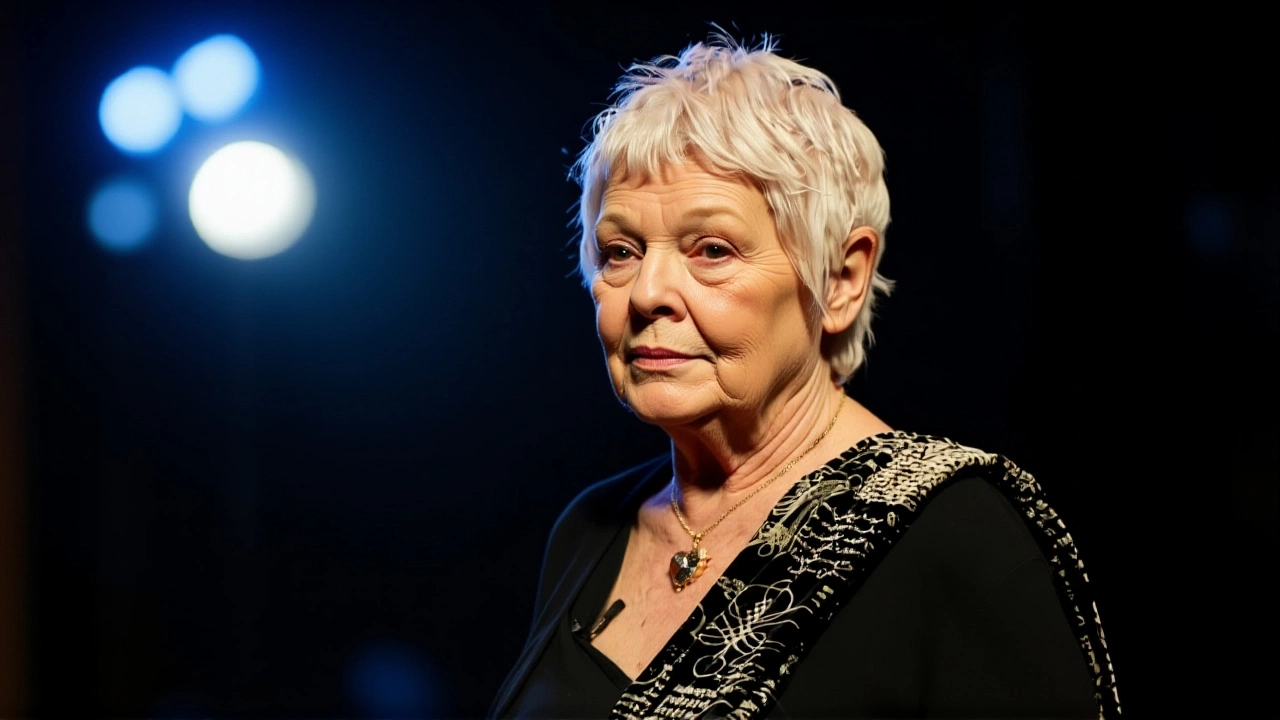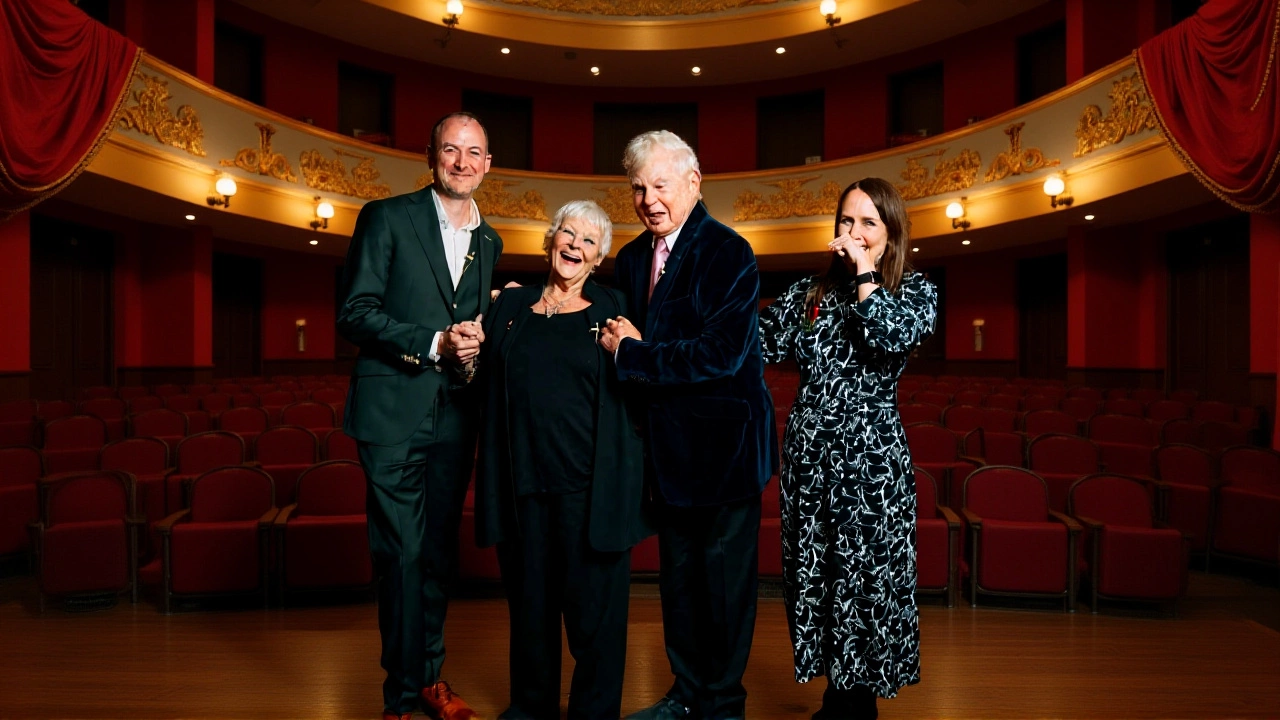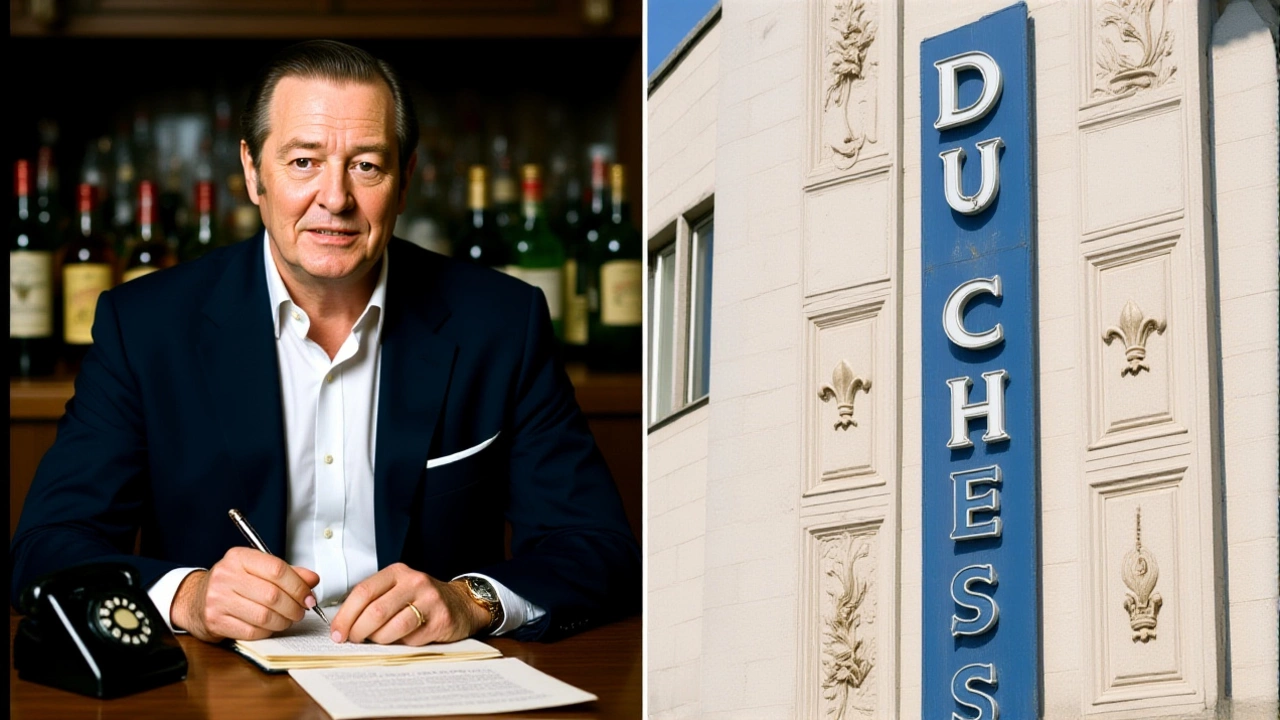When Dame Judi Dench stood at the back of the Duchess Theatre last month, she didn’t just admire the faded velvet curtains—she remembered the silence after the final line of The Deep Blue Sea in 1952. That silence, she told a small gathering, wasn’t just applause withheld. It was the sound of a generation turning away from a master. Now, 73 years later, she’s helping lead a quiet revolution: renaming the theatre after its most poignant resident, Terence Rattigan.
A Playwright Forgotten, Then Remembered
Terence Rattigan didn’t write in shouts. He wrote in whispers. His plays—The Browning Version, The Winslow Boy, Separate Tables—were about men who couldn’t speak their grief, women who buried their longing under teacups, and the quiet collapse of dignity in postwar Britain. In the 1950s, the theatre world called him old-fashioned. The so-called “Angry Young Men,” like John Osborne, stormed the stage with rage and rebellion. Rattigan? He was under the frown. George Devine, then artistic director of the Royal Court, reportedly recoiled when told he’d been moved by Rattigan’s work.But time has a way of correcting injustice. The 2011 film adaptation of The Deep Blue Sea, directed by Terence Davies and starring Rachel Weisz and Tom Hiddleston, didn’t just revive interest—it redefined Rattigan for a new century. Audiences wept. Critics apologized. And now, the people who knew him best are demanding something permanent.
The Duchess Theatre: A Stage That Knew Him Best
The Duchess Theatre opened in 1929, named for the then-Duchess of York, later Queen Elizabeth. But its most enduring legacy? The night of March 6, 1952, when The Deep Blue Sea premiered. Kenneth More played Freddie Page, a pilot drowning in love and guilt. A plaque still hangs near the stage, commemorating his performance. It’s not just history—it’s a shrine.
That’s why the Terence Rattigan Society, led by David Suchet (yes, Poirot himself), has chosen this venue as the battleground for legacy. The campaign isn’t sentimental. It’s corrective. Rattigan’s work was dismissed as too polite, too English, too restrained. But restraint, as Dench once said, “isn’t weakness—it’s courage with a corset on.”
Supporters include Sir Derek Jacobi, Sir Tom Stoppard, Hugh Bonneville, Dame Penelope Wilton, and 10 others. That’s not a list of stars. That’s a roll call of the British theatre’s conscience.

Why Now? The 50th Anniversary Clock Is Ticking
It’s 2025. Rattigan died in 1977. That means the 50th anniversary of his death is just two years away. The society isn’t waiting for the anniversary to pass. They’re racing to make sure the tribute is ready. “For him to have his own theatre,” said David Suchet in a recent interview, “would be the perfect way to mark it.”
And it’s not just about naming. It’s about reclamation. The Duchess Theatre has hosted everything from farces to musicals. But no playhouse in London has carried the emotional weight of Rattigan’s voice. The campaign isn’t asking for a statue or a plaque. It’s asking for the building itself to become his monument.
The Spectator called it “laying some of the ghosts to rest.” And they’re right. Rattigan spent his final years lonely, overlooked, his name whispered in academic circles but rarely shouted from marquees. Even his 1971 knighthood felt like a consolation prize.
What Happens Next? The Battle for a Name
The Duchess Theatre is owned by the Delfont Mackintosh Group, which operates several West End venues. They’ve not yet commented publicly. But the campaign has a clear strategy: public pressure, media momentum, and a flood of letters from theatre lovers. The society’s email—[email protected]—is already buzzing. More than 2,000 supporters have written since January.
There’s precedent. The Prince of Wales Theatre was renamed the Novello Theatre in 2005 after composer Ivor Novello. The Adelphi Theatre briefly carried the name of playwright Alan Ayckbourn in 2017 for a special season. But renaming a theatre permanently? That’s rare. And powerful.
If successful, the Terence Rattigan Theatre would become the first major West End venue named after a playwright since the 1970s. And it would signal something deeper: that quiet, emotional storytelling still belongs on these stages.

A Legacy Beyond the Stage
Here’s the twist: Rattigan may have been rejected by theatre, but film loved him. His screenplay for The Man Who Never Was (1956) was nominated for an Oscar. His adaptations of his own plays—The Browning Version (1951), The Deep Blue Sea (1955)—were critically adored. The 2011 film, with its haunting score and Weisz’s devastating performance, proved his stories still cut deep.
“He deserved a cinema,” wrote The Spectator. “But he deserves a theatre more.”
Because cinema is temporary. Theatre is ritual. And Rattigan’s work? It’s meant to be lived in, breathed with, felt in the dark.
Frequently Asked Questions
Why target the Duchess Theatre specifically?
The Duchess Theatre is where Rattigan’s The Deep Blue Sea premiered on March 6, 1952, and where a plaque still honors Kenneth More’s performance. It’s the only West End venue with a direct, physical connection to his most emotionally resonant play. Renaming it would anchor his legacy to the exact space where his voice first moved audiences in that profound, quiet way.
Who is leading the campaign, and how can people help?
The campaign is led by David Suchet, president of the Terence Rattigan Society, with public backing from Dame Judi Dench and 14 other theatre icons. Anyone can support the effort by emailing [email protected]. Over 2,000 letters have already been sent, and the society is collecting signatures for a formal petition to the theatre’s owners.
What’s the likelihood of success?
While no official response has come from the Delfont Mackintosh Group, the campaign’s momentum is unusual. The involvement of multiple national treasures—Dench, Jacobi, Stoppard—gives it cultural weight. Similar renamings, like the Novello Theatre, succeeded after sustained public pressure. With the 50th anniversary of Rattigan’s death approaching in 2027, timing is on their side.
How did Rattigan’s style differ from the ‘Angry Young Men’?
Where Osborne and Pinter wrote about rage, rebellion, and social upheaval, Rattigan focused on internal suffering—unspoken grief, repressed desire, the dignity of silence. His characters didn’t shout; they trembled. Critics called him outdated, but his restraint made his emotional moments devastating. Today, audiences find his work more timeless than the abrasive energy of his rivals.
Has any other playwright had a theatre named after them in the West End?
Not permanently. The Novello Theatre honors composer Ivor Novello, and the Harold Pinter Theatre was renamed for the Nobel laureate in 2011. Rattigan would be only the second playwright with a permanent West End namesake, and the first since Pinter. That makes this campaign historically significant.
What does this mean for British theatre’s future?
Renaming the Duchess Theatre would signal that emotional depth, subtlety, and psychological realism still have a place on Britain’s most famous stages. It would validate a generation of writers who were dismissed as too polite—and encourage new playwrights to explore quiet, human truths rather than just loud political statements. This isn’t just about Rattigan. It’s about what kind of stories we choose to remember.
